Books
Books

DAISYWORLD MAGAZINE #4
CONTRIBUTORS Anna Bierler, India Boxall, Craig P Burrows, Alex Hampshire, Kayla Adara Lee, Marijn van der Leeuw, Melanie Matthieu, Gabriella T Moreno, Amira Prescott, Harrison Pickering, Astarte Posch, Ananda Serné, Zazie Stevens, Gedvile Tamosiunaite, Mia You.
cover image Ananda Serné & Poyen Wang
DAISYWORLD MAGAZINE is a seasonal art publication on perception, the sensory, the non-human, ecology & erotica with an emphasis on interconnectedness. The artist's intimate knowledge based on observation, questioning anthropocentrism through beauty & language. Reflecting on the past season while softly moving into the next, each issue launches in-between seasons; appreciating experience, transition, and metamorphosis instead of anticipating the next big thing.

Living on air: the films and words of Sandra Lahire
Charlotte Procter, María Palacios Cruz
Compiled on the occasion of a Sandra Lahire retrospective at Courtisane festival 2021. This cahier was developed in collaboration with Elías Querejeta Zine Eskola (San Sebastian). Edited by María Palacios Cruz and Charlotte Procter.
Living on air: the films and words of Sandra Lahire is the first monograph dedicated to the work of Sandra Lahire and brings together new and existing texts on Lahire as well as writing by herself, with contributions by Gill Addison, Jo Comino, Pam Cook, Laura Guy, Maud Jacquin, Julia Knight, Michael Mazière, Sarah Pucill, Irene Revell & Kerstin Schroedinger, Lis Rhodes, Selina Robertson & Ricardo Matos Cabo (with So Mayer), Vicky Smith, Sarah Turner and Ana Vaz.

Out of the Shadows
Gerard-Jan Claes, Stoffel Debuysere
Compiled by Courtisane and Sabzian on the occasion of the Out of the Shadows programme, originally conceived for Courtisane festival 2020 but rescheduled to Courtisane festival 2021.
This program and publication was developed with the support of The Arab Fund for Arts and Culture (AFAC), CINEMATEK and KASK / School of Arts, in collaboration with Reem Shilleh and Mohanad Yaqubi (Subversive Film).
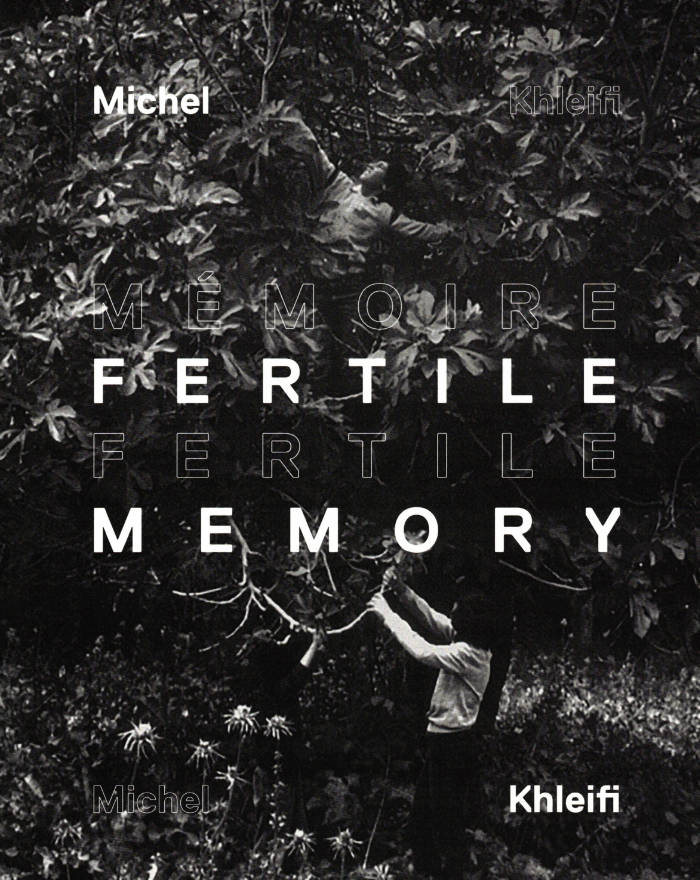
Michel Khleifi, Mémoire Fertile / Fertile Memory
Michel Khleifi, Stoffel Debuysere
Compiled on the occasion of new restorations of Michel Khleifi’s films by CINEMATEK and a retrospective film programme organized by CINEMATEK and Courtisane (26 September - 5 November 2019), this publication aims to provide a modest summary of the trajectory of Michel Khleifi on the basis of a series of texts and interviews that were produced between 1981 and 2019.
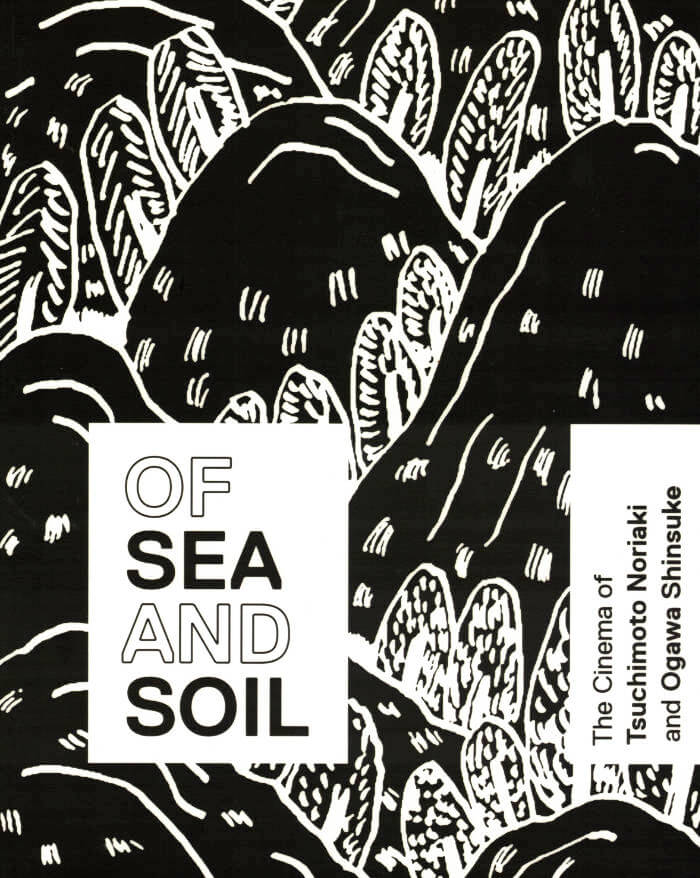
Of Sea and Soil: The Cinema of Tsuchimoto Noriaki and Ogawa Shinsuke
Stoffel Debuysere, Elias Grootaers
This publication aims to trace the trajectories of Ogawa Shinsuke and Tsuchimoto Noriaki, who film critic Hasumi Shigehiko respectively called “the filmmaker of the soil” and “the filmmaker of the sea”.
The publication has taken the form of a scrapbook which assembles a patchwork of writings, quotes and interviews that we were able to track down and translate, with the help of numerous other “amateurs” who admire and cherish the work of these two filmmakers. Developed on the occasion of the programs by Courtisane and CINEMATEK devoted to Tsuchimoto and Ogawa. In collaboration with Sabzian.
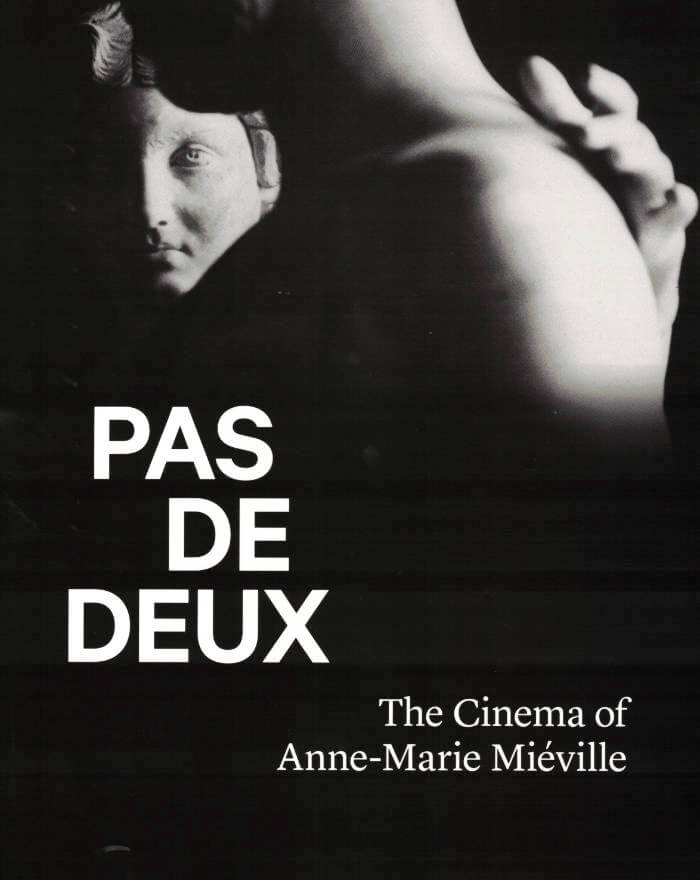
Pas de deux, Le cinéma de Anne-Marie Miéville
Developed on the occasion of a retrospective program of the work of Anne-Marie Miéville. Courtisane, CINEMATEK and Sabzian have collected a series of writings and interviews in a small-edition bilingual publication (French/English).
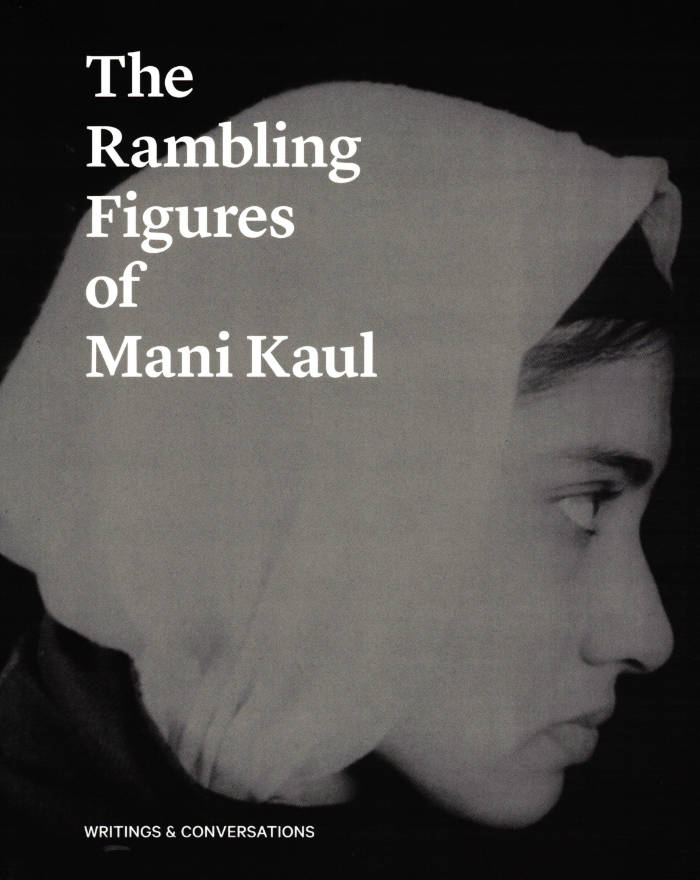
The Rambling Figures of Mani Kaul
Arindam Sen, Stoffel Debuysere
Published on the occasion of the program Soft Notes on A Sharp Scale — The Rambling Figures of Mani Kaul, produced as part of the Courtisane festival 2018, as well as the associated Mani Kaul programme organized by the Essay Film Festival 2018, in collaboration with the Otolith Group.
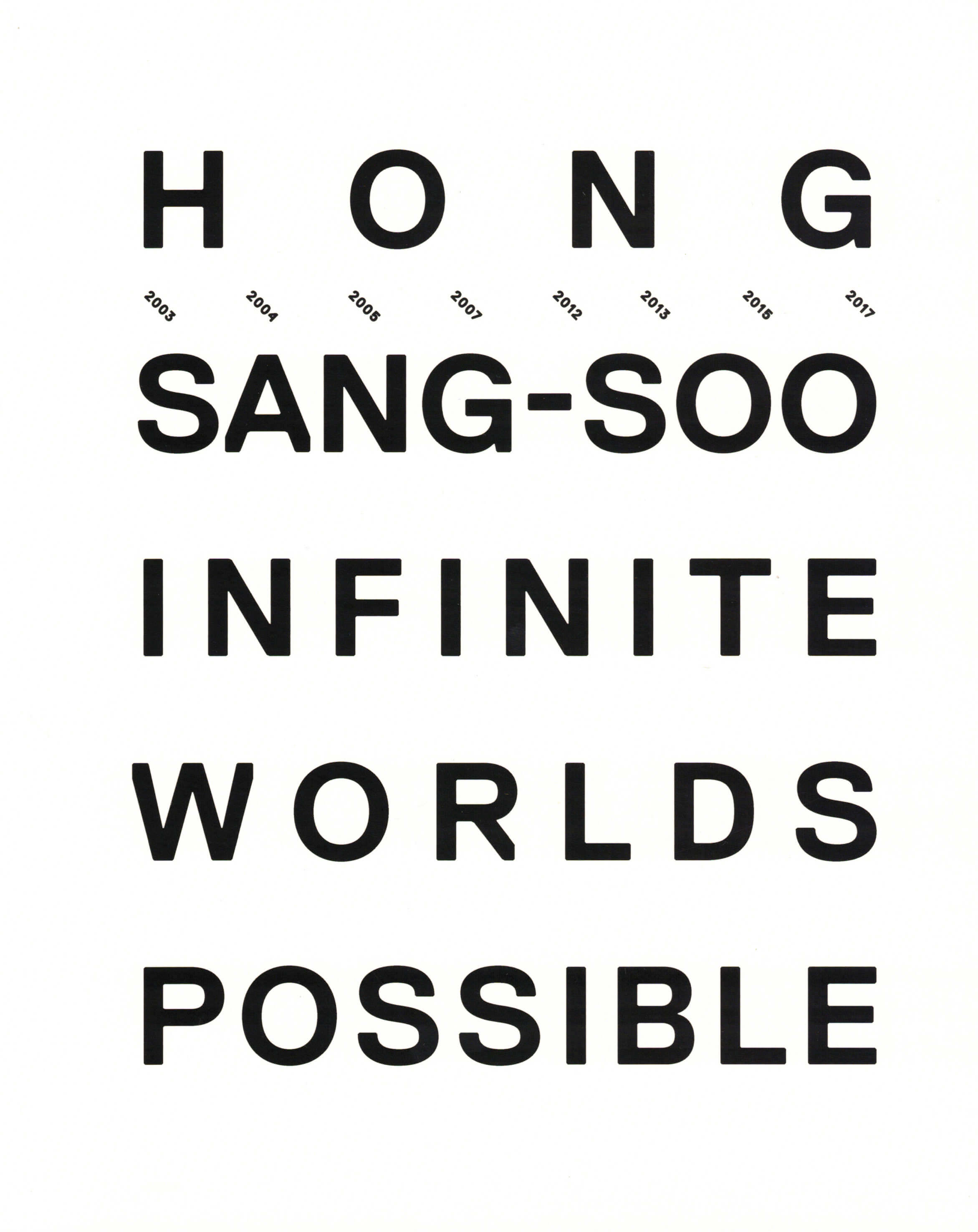
Hong Sang-Soo, Infinite Worlds Possible
Gerard-Jan Claes, Stoffel Debuysere
Developed on the occasion of a Hong Sang-soo retrospective at CINEMATEK in 2018. Infinite Worlds Possible is compiled, edited and published by Courtisane, CINEMATEK and Sabzian. It aims to trace the development of Hong’s remarkable body of work through a collection of essays and interviews.

"Tu verras quand tu seras grand!"
Un livre qui t’expliquera tout sur l’argent, l’économie capitaliste, le système bancaire, la police et la révolution !
"Tu verras quand tu seras grand!", premier livre pour enfants des éditions L'Amazone, explique l’économie capitaliste mondialisée à travers quatre chapitres sur l'argent, le système bancaire, la police et la révolution. Il a été réalisé à partir des livres cités par l’auteure Marie L’or Kaeppelin-Billaudot dans Il sera une fois… Essai sur le contenu des livres pour enfants (Espaces féminins, La pensée sauvage, 1978). "Tu verras quand tu seras grand!" part du constat que peu de livres pour enfants traitent ouvertement de la question économique alors qu’elle est omniprésente dans leur quotidien. Le détournement de ces ouvrages, plus de quarante ans après leurs publications, nous permet de repenser notre rapport à ces mythes fondateurs, de la même manière qu’un conte joue un rôle dans la construction d’une histoire commune.
À partir de 6 ans.
Conception d’ouvrage : Tiphanie Blanc
Design Graphique : Tiphanie Blanc & Roxanne Maillet
Impression riso : Autobahn
Couverture sérigraphiée : Chromodrome
Papier : Arena Natural Rough 200g & Sirio Color Foglia 350g
Typographies : Ovo de Nicole Fally, Gaya de Raphaël de la Morinerie, DinDong de Clara Sambot, Zarathustra de Lorène Ceccon, Cormorant de Catharsis Fonts & Zipper de Bob Newman
Exemplaires : 250

The Annotated Reader (USB)
Jonathan P. Watts, Ryan Gander
Usb version of The Annotated Reader, a publication-as-exhibition and exhibition-as-publication featuring 281 creative personalities responses and remarks on a chosen piece of writing.
Ryan Gander and Jonathan P. Watts invited a range of people, encompassing contemporary artists, designers, writers, institutional founders, musicians and so on – to imagine they’ve missed the last train.
“Is there one piece of writing that you would want with you for company in the small hours?” With this in mind, we asked people to submit a text with personal annotations and notes made directly onto it.
With over 281 contributions collected over the last few months, we have gathered a selection of contributors including Marina Abramović, Art & Language, Paul Clinton, Tom Godfrey, Ragnar Kjartansson, Sarah Lucas, Alistair Hudson and Hans Ulrich Obrist. The annotation adds a further layer, making each piece unique and a historic record of our current times.

Walking Through Clear Water in a Pool Painted Black, New Edition: Collected Stories
The first collected edition of legendary writer, actress, and adventurer Cookie Mueller's stories, featuring the entire contents of her 1990 book Walking through Clear Water in a Pool Painted Black, alongside more than two dozen others, some previously unpublished.
Legendary as an underground actress, female adventurer, and East Village raconteur, Cookie Mueller's first calling was to the written word: I started writing when I was six and have never stopped completely, she once confessed. Muellerís 1990 Walking through Clear Water in a Pool Painted Black, the first volume of the Semiotext(e) Native Agents series, was the largest collection of stories she compiled during her life. But it presented only a slice of Mueller's prolific work as a writer. This new, landmark volume collects all of Mueller's stories: from the original contents of Clear Water, to additional stories discovered by Amy Scholder for the posthumous anthology Ask Dr. Mueller, to selections from Mueller's art and advice columns for Details and the East Village Eye, to still new stories collected and published here for the first time. Olivia Laing's new introduction situates Mueller's writing within the context of her life—and our times.
Thanks to recent documentaries like Mallory Curley's A Cookie Mueller Encyclopedia and Chloé Griffin's oral biography Edgewise, Mueller's life and work have been discovered by a new generation of readers. Walking through Clear Water in a Pool Painted Black: Collected Stories returns essential source material to these readers, the archive of Mueller's writing itself. Mueller's many mise en scènes—the Baltimore of John Waters, post-Stonewall Provincetown, avant-garde Italy, 1980s New York, an America enduring Reagan and AIDS—patches together a singular personal history and a primer for others. As Laing writes in her introduction, Collected Stories amounts to a how-to manual for a life ricocheting joyously off the rails, a live corrective to conformity, conservatism, and cruelty.

Boat
In 2004, boldly original poet Lisa Robertson published a chapbook, Rousseau's Boat, poems culled from years of notebooks that are, nevertheless, by no means autobiographical. In 2010, she expanded the work into a full-length book, R's Boat. During the pandemic, she was drawn back into decades of journals to shape Boat. These poems bring fresh vehemence to Robertson's ongoing examination of the changing shape of feminism, the male-dominated philosophical tradition, the daily forms of discourse, and the possibilities of language itself.
Poet and essayist Lisa Robertson has held residencies at the California College of the Arts, Cambridge University; University of California, Berkeley; UC San Diego; and American University of Paris. Her books include Cinema of the Present, Debbie: An Epic (nominated for the Governor General's Award in Canada), The Men, The Weather, R's Boat (poetry) and Occasional Works and Seven Walks from the Office for Soft Architecture (essays). Lisa Robertson's Magenta Soul Whip (Coach House) was named one of The New York Times 100 Notable Books of 2010, and was longlisted for the 2011 Warwick Prize for Writing. She won the inaugural C. D. Wright Award. She currently lives in France.
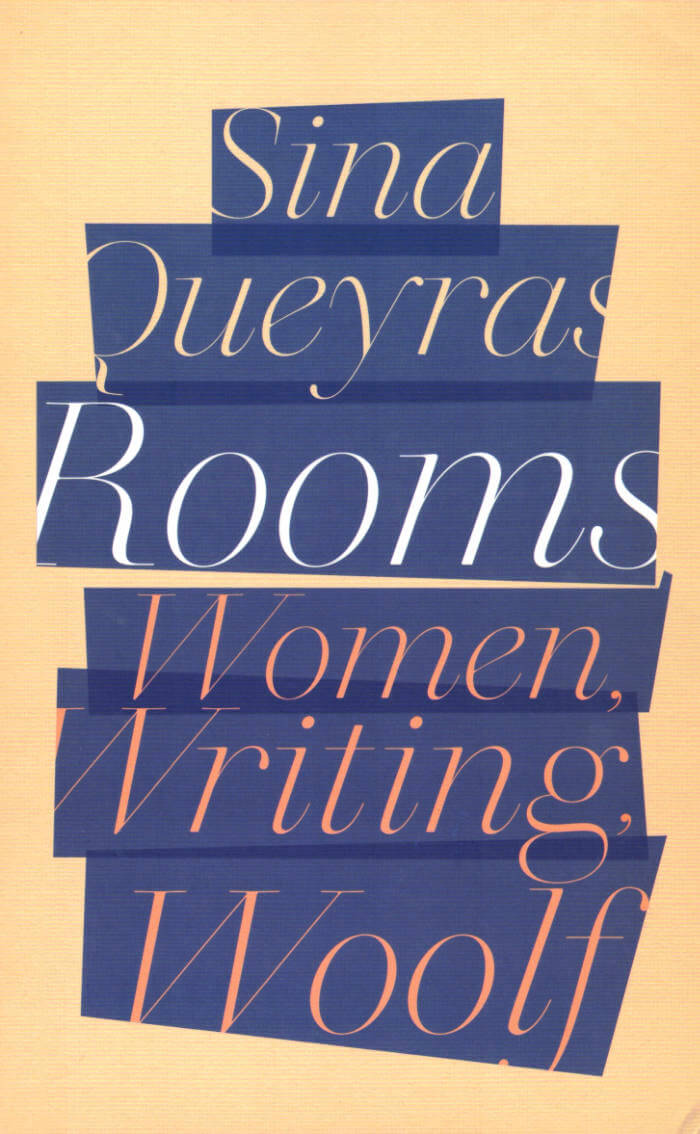
Rooms: Women, Writing, Woolf
From LAMBDA Literary Award winner Sina Queyras, Rooms offers a peek into the defining spaces a young queer writer moved through as they found their way from a life of chaos to a life of the mind.
Thirty years ago, a professor threw a chair at Sina Queyras after they'd turned in an essay on Virginia Woolf.
Queyras returns to that contentious first encounter with Virignia Woolf to recover the body and thinking of that time. Using Woolf's A Room of One's Own as a touchstone, this book is both an homage to and provocation of the idea of a room of one's own at the centre of our idea of a literary life.
How central is the room? And what happens once we get one? Do we inhabit our rooms? Or do the rooms contain us? Blending memoir, prose, tweets, poetry, and criticism, Rooms offers a peek into the defining spaces a young queer writer moved through as they found their way from a life of chaos to a life of the mind, and from a very private life of the mind to a public life of the page, and from a life of the page into a life in the Academy, the Internet, and on social media.
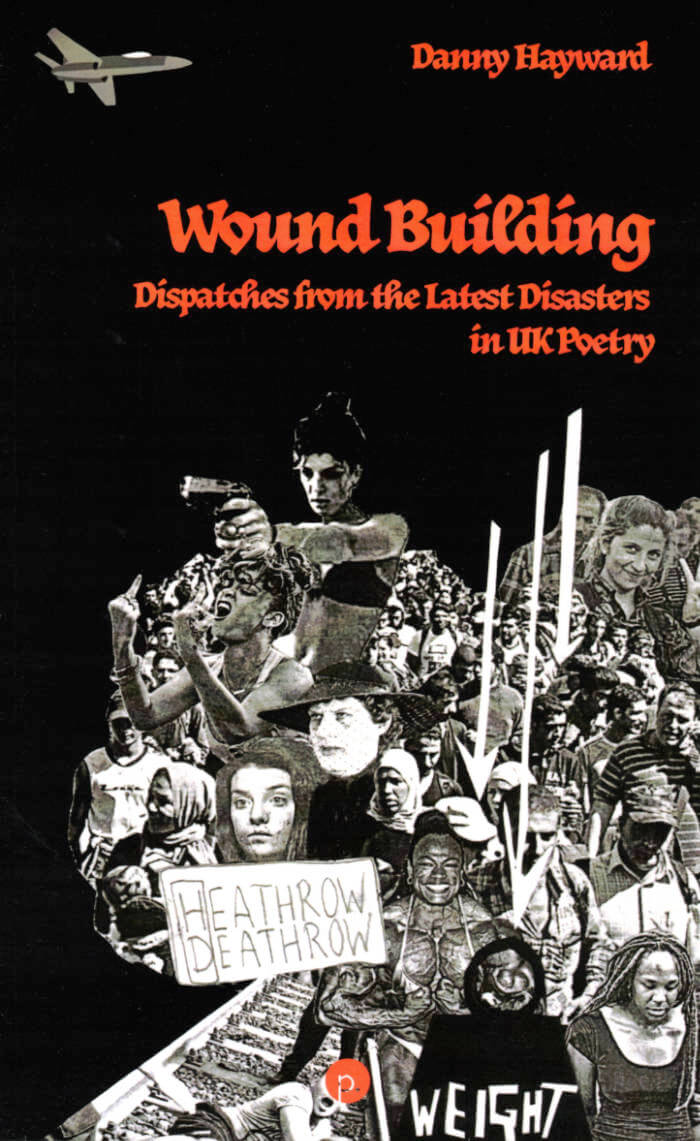
Wound Building: Dispatches from the Latest Disasters in UK Poetry
Wound Building is a volume of essays, with digressions, on one group of contemporary poets active in a self-organizing political poetry scene in the UK, most of whom have little to no audience outside of the little magazines that they publish and the reading series they put on. The book is a front-line report on the rapid development of this poetry in the period between 2015 and 2020, with a particular focus on the relationship of poetry to violence and its representation. The poets discussed here write violent love poems and violent elegies as well as violent fantasies composed in stabs of violent verse and violet prose. The poems themselves comprise fantasies of killing David Cameron, dreams of being split open along a seam, basement songs, hundreds of pages of notes on working life in a privatized care home in Hove, East Sussex, a four-line slogan about the Cologne groping scandal of New Year 2016, variations on the Refugees Medical Phrasebook, a life wasted in a factory in Guangzhou, an autobiographical sci-fi internet fever dream, an anarchist elegy, and a refusal to argue. Ultimately, Hayward argues that the lessons this poetry teaches is never to write a "worthy" narrative when a fucked up collage will do. Rather than a cohesive "account" of a "school" of poets, or a "contribution" to the boring tittle-tattle of aesthetic debates over British poetry as an institution, Wound Building is a front-line report on the local disasters of a contemporary UK poetry caught in the grip of the historical cataclysm of capitalist culture.
Wound Building is further concerned with aesthetic problems related to Marxism, anarchism, contemporary trans politics, and class, though its "theoretical" preoccupations are subordinated to its desire to provide a ground-level view on the writing itself, its production, its intellectual aporia, and the ways it finds itself outstripped by the ongoing "march of events." The book will be of interest not only for those concerned with contemporary British political and experimental poetry, but also more generally for anyone who wishes to think carefully about what it means to make art about present-day history and its many horrible enormities.
The book's title is derived from the idea of sublime woundedness that subtends the context of the poets discussed here: the impressions of wounds opening up like LED-lit shopfronts in the night, in a parallel universe in which injury is intoxicatingly impersonal and structural, and which forms the environment in which the poems fight to absolutize the value of every last breath, or face into the reality of extravagantly violent wish fulfillment, or dissolve themselves in a search for new ways of professing love, or transform into a kind of expressionism of vomiting up medical-diagnostic categories found in abstract social labor, or pump their verses full of the convulsive rhythms of surprise and sudden relief, without any guarantee that this is the right thing to do or that anyone will even fucking hear. Wound Building does not historicize this state of affairs as much as it attempts to live alongside the immediacy of this work, in order to see what is still possible for poetry, and criticism, to make and do.

Saborami
First published in 1973, two months after the military coup in Chile, Cecilia Vicuña's SABORAMI is a document of the times and the way in which history can change art. It is filled with the urgent hope that art, too, can change history. Put together when Vicuña was just twenty-five years old, the poems, paintings, and objects of SABORAMI enact a complex and multidimensional conversation. The meanings of the works (which were created over a seven year period) shifted radically after the events of September 11, 1973. Their meanings continue to shift and resonate in light of political events today. This recreation of the original SABORAMI is published with a new afterword Vicuña wrote especially for this edition.
Cecilia Vicuña is a poet, visual artist, and filmmaker born in Santiago de Chile. The author of twenty books of poetry, she exhibits and performs widely in Europe, Latin America, and the United States. Her multidimensional works begin as a poem, an image or a line that morphs into a film, a song, a sculpture or a collective performance.
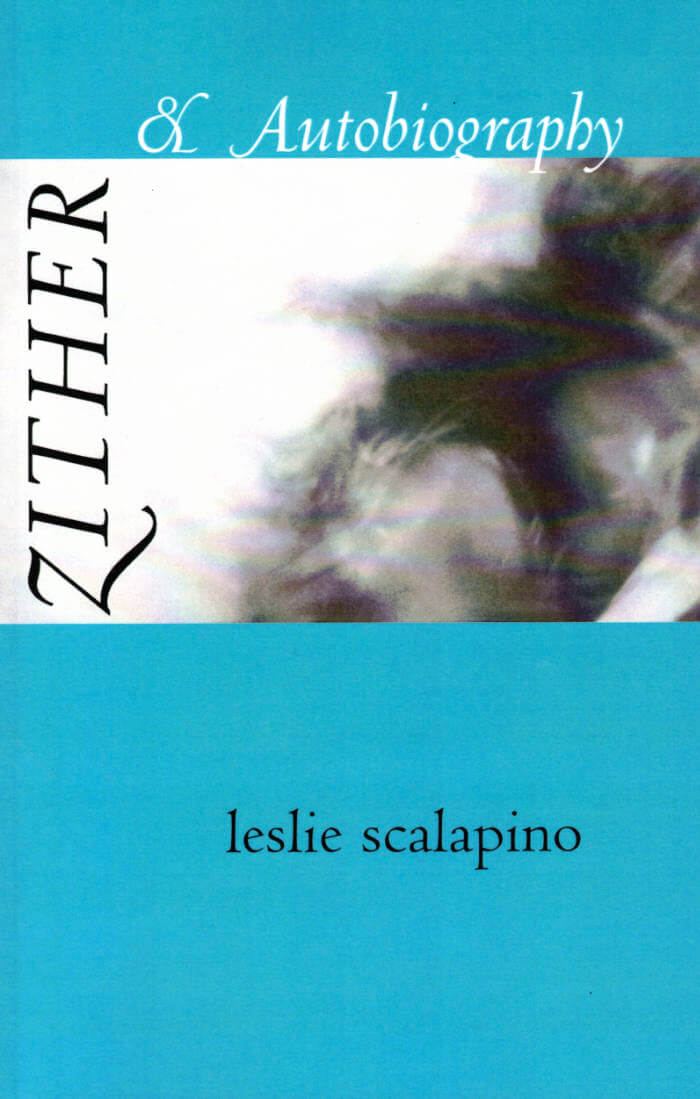
Zither & Autobiography
Zither & Autobiography is comprised of two parts: the author's autobiography and a book-length poem entitled Zither. Both parts of the book are concerned with facts and their undoing. In Autobiography, Scalapino explores her shifting memories of childhood—especially of years spent in Asia—experimenting with the memoir form to explore how a view of one's own life develops, how fixed memories move as illusion.
Zither opens with a unique narrative that the author describes as samurai film, and as Classic Comic of Shakespeare's King Lear (without using any of Shakespeare's language, characters or plot). Creating a complex spatial soundscape, the poem works formally to allow continual change of one's conceptions while reading. The juxtaposition of the two parts and the connection between them is the anarchist moment... disjunction itself, a key concept in much of Scalapino's work. This vivid book reveals in every thought-sparking section just why Scalapino has been hailed by Library Journal as one of the most unique and powerful writers at the forefront of American literature.
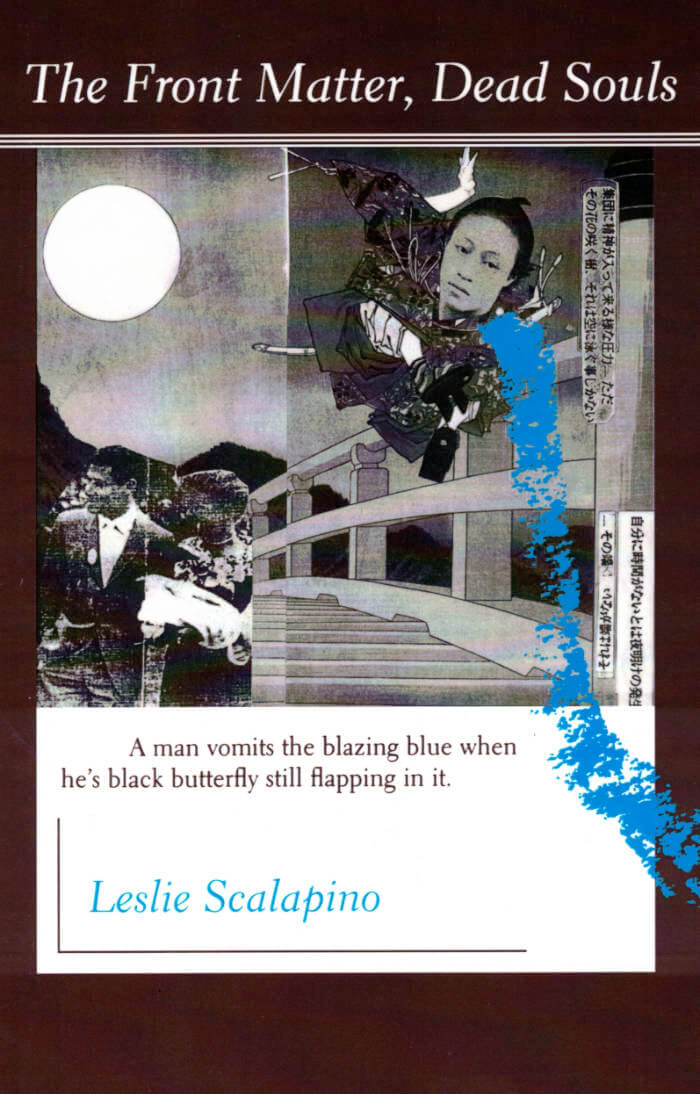
The Front Matter, Dead Souls
This extraordinary new book is essay-fiction-poetry, an experiment in form, a serial novel for publication in the newspaper that collapses the distinction between documentary and fiction.
Leslie Scalapino is widely regarded as one of the best avant-garde writers in America today. This extraordinary new book is essay-fiction-poetry, an experiment in form, a serial novel for publication in the newspaper that collapses the distinction between documentary and fiction. Loosely set in Los Angeles, the book scrutinizes our image-making, producing extreme and vivid images-hyena, Muscle Beach in Venice, the Supreme Court, subway rides-in order for them to be real. Countering contemporary trends toward interiority, Scalapino's work constitutes a unique effort to be objectively in the world. The writing is an action, a dynamic push to make intimacy in the public realm. She does not distinguish between poetry and real events: her writing is analogous to Buddhist notions of dreaming one is a butterfly, and becoming aware that actually being the butterfly is as real as dreaming it.

The Public World / Syntactically Impermanence
The Public World / Syntactically Impermanence is a rich consideration of the strategies of poetry, and the similarities between early Zen thought and some American avant-garde writings that counter the language of determinateness, or conventions of perception. The theme of the essays is poetic language which critiques itself, recognizing its own conceptual formations of private and social, the form or syntax of the language being syntactically impermanence.
Whether writing reflexively on her own poetry or looking closely at the writing of her peers, Leslie Scalapino makes us aware of the split between commentary (discourse and interpretation) and interior experience. The poetry in the collection is both commentary and interior experience at once. She argues that poetry is perhaps most deeply political when it is an expression that is not recognized or readily comprehensible as discourse.

Modern Love
Constance DeJong’s long-neglected 1977 novel, Modern Love, is one thing made up of many: It is science fiction. It is a detective story. It is a historical episode in the time of the Armada and the dislocation of Sephardic Jews from Spain to an eventual location in New York’s Lower East Side. It is a first-person narrator’s story; Charlotte’s story; and Roderigo’s; and Fifi Corday’s. It is a 150-year-old story about Oregon and the story of a house in Oregon. Modern Love’s continuity is made of flow and motion; like an experience, it accumulates as you read, at that moment, through successive moments, right to the end.
An important figure of downtown New York’s performance art and burgeoning media art scene in the late 1970s and early 1980s, DeJong designed Modern Love herself and published it with help from Dorothea Tanning on the short-lived Standard Editions imprint. Critically acclaimed in its time, Modern Love is now back in print on the 40th anniversary of its original publication.
Constance DeJong is an artist and writer who has worked for thirty years on narrative form within the context of avant-garde music and contemporary art. Considered one of the progenitors of media art, or “time-based media,” DeJong shapes her intricate narrative form through performances, audio installations, print texts, electronic objects, and video works. Since the 1980s, DeJong has collaborated with Phillip Glass, Tony Oursler, and the Builders Association on performances and videos at Walker Art Museum, Minneapolis, MN; the Wexner Center, Columbus, OH; Philadelphia Museum of Art; and in New York, at The Kitchen, Thread Waxing Space, the Whitney Museum of American Art, and the Dia Center for the Arts. Her books include I.T.I.L.O.E. and SpeakChamber, and her work is included in the anthologies Up is Up, But So is Down: New York’s Downtown Literary Scene, 1974–1991 (NYU Press, 2006); Blasted Allegories (New Museum/MIT, 1987); and Wild History (Tanam Press, 1985).

Unpayable Debt
An examination of the relationship between coloniality, raciality, and global capital through a black feminist poethical framework, inspired by Octavia E. Butler's sci-fi novel Kindred (first volume in the On the Antipolitical series).
Unpayable Debt examines the relationship between coloniality, raciality, and global capital through a black feminist poethical framework. Inspired by Octavia E. Butler's 1979 sci-fi novel Kindred, in which an African American writer is transported back in time to the antebellum South to save her owner-ancestor, Unpayable Debt relates the notion of value to coloniality—both economic and ethical. Focusing on the philosophy behind value, Denise Ferreira da Silva exposes capital as the juridical architecture and ethical grammar of the world. Here, raciality—a symbol of coloniality—justifies deployments of total violence to enable expropriation and land extraction.
First volume in the On the Antipolitical series, edited by Ana Teixeira Pinto, devoted to the historical study of the depoliticization process, situating it within the neocolonialcontinuum that animates the digital frontier as the new locus of settler becoming.
Dr. Denise Ferreira da Silva's academic writings and artistic practice address the ethical questions of the global present and target the metaphysical and ontoepistemological dimensions of modern thought. Currently, she is a Professor and Director of The Social Justice Institute (the Institute for Gender, Race, Sexuality, and Social Justice) at the University of British Columbia.
Edited by Ana Teixeira Pinto.
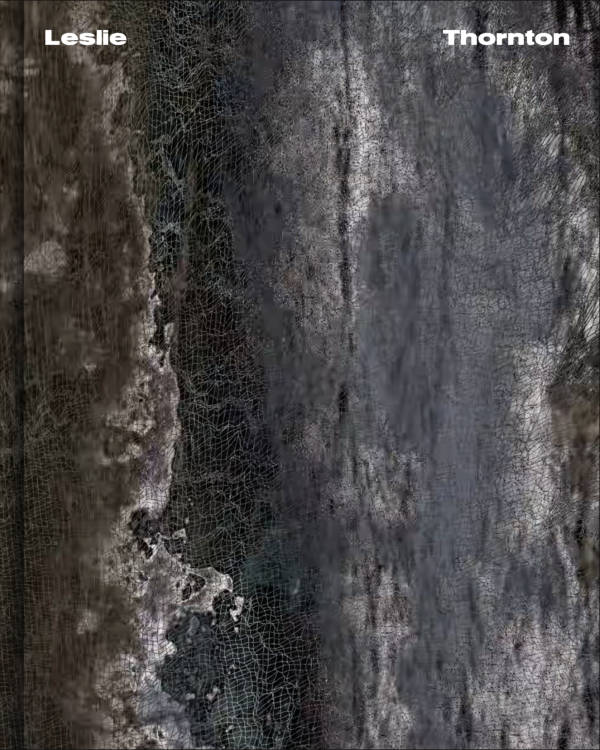
Leslie Thornton
Leslie Thornton, Natalie Bell and 2 more
Produced on the occasion of Leslie Thornton's major solo exhibition at the MIT List Visual Arts Center as well as a recent solo exhibition at Kunstverein Nurnberg, this richly illustrated volume is the first monograph on this important artist and filmmaker, offering essential, foundational scholarship on Thornton's influential work in film and video.
Since the mid-1970s, American avant-garde filmmaker and artist Leslie Thornton (born 1951) has produced an influential body of work in film and video. Thornton's early encounters with experimental, structuralist, and cinéma vérité traditions fueled her iconoclastic take on the moving image and gave shape to her practice of weaving together her own footage and voice with archival film and audio. In part through her forceful and dynamic use of sound, Thornton exposes the limits of language and vision in her works, while acknowledging the ways that language and vision nevertheless remain central to scientific discourse and narrative in general. Her work consistently interrogates modes of representation and the violence of looking, pushing beyond critiques of the gaze to consider biases in perception, or the way voice and sound can undermine an otherwise dominant visual narrative.

Spike #71 – Couples
For the latest Spike – #71: Couples—we're seeing double. This one is dedicated to partnerships in life, love, law, and labour. Whether you're a serial monogamist, married to your job, or sublimating your crushy feelings into all that you create, it's tough to deny the role that romance—or its absence—plays in shaping our subjectivities.
Might coupling be key to seeing beyond the self, opening us up to a more expansive, collaborative (co)existence? And do relationship breakdowns parallel wider social strife? Can the dusty old dyad be reconceived as radical? What happens when art-world couples blend business and pleasure?
Curl up with your soul mate—or settle into singledom—and grab a copy to read about the uses of love beyond love; the motivation posed by muses and rivals; psychoanalytic takes on partners' promises; along with artist-couples, curatorial duos, rom-com heroes, spectres, fembots, and beyond.
With Chris Kraus, Asa Seresin, Whitney Mallett, Alenka Zupančič, Johanna Hedva, Sam Kriss, Calla Henkel & Max Pitegoff, Genesis & Lady Jaye Breyer P-Orridge, Darian Leader & Jamieson Webster, Eva & Franco Mattes, Tea Hacic-Vlahovic, and many more.
Founded by the artist Rita Vitorelli in 2004, Spike (Spike Art Quarterly) is a quarterly magazine on contemporary art published in English which aims at sustaining a vigorous, independent, and meaningful art criticism. At the heart of each issue are feature essays by leading critics and curators on artists making work that plays a significant role in current debates. Situated between art theory and practice and ranging far beyond its editorial base in Vienna and Berlin, Spike is both rigorously academic and stylishly essayistic. Spike's renowned pool of contributing writers, artists, collectors and gallerists observe and reflect on contemporary art and analyse international developments in contemporary culture, offering its readers both intimacy and immediacy through an unusually open editorial approach that is not afraid of controversy and provocation.

Notes on a life not lived
This publication is based on a project by Despina Vassiliadou that ran from 2015-16. It presents a collection of photographs taken during the period, accompanied by fictional short stories.

À L’ARRACHE: Portraits & récits de la scène musicale underground de Lyon, 1980—2020
« Des nuits des fêtes et de mille concerts que reste-il ? Des souvenirs brumeux de lieux improbables, des anecdotes en pagaille, une affiche dans ton salon, un flyer sur ton frigo, des histoires vertigineuses et des émotions de toutes sortes. On pensera aussi tout de suite à des visages, des rencontres, des aamitiés aui commencent au coin du bar ou fumant une cigarette dans un hangar glacial. Et puis ça se précise: tu te souviens tel concert génial, ce groupe qui t'obsède, cette salle moquette où tu écoutais des nappes de bruit, cette villa bourgeoise squatté qui débordait de sons obscurs et violents, cette ancienne usine occupée le temps d'un week-end par des teufeurs multicolores, un dojo de métalleux ou je ne sais quel autre endroit bizarre, on en veut encore. » [note de l'editeur]
336 pages de textes et d’images
format 18 x 26 cm
Graphisme : Félicité Landrivon avec Églantine Marcel
Éditions BARBAPOP, Décembre 2021